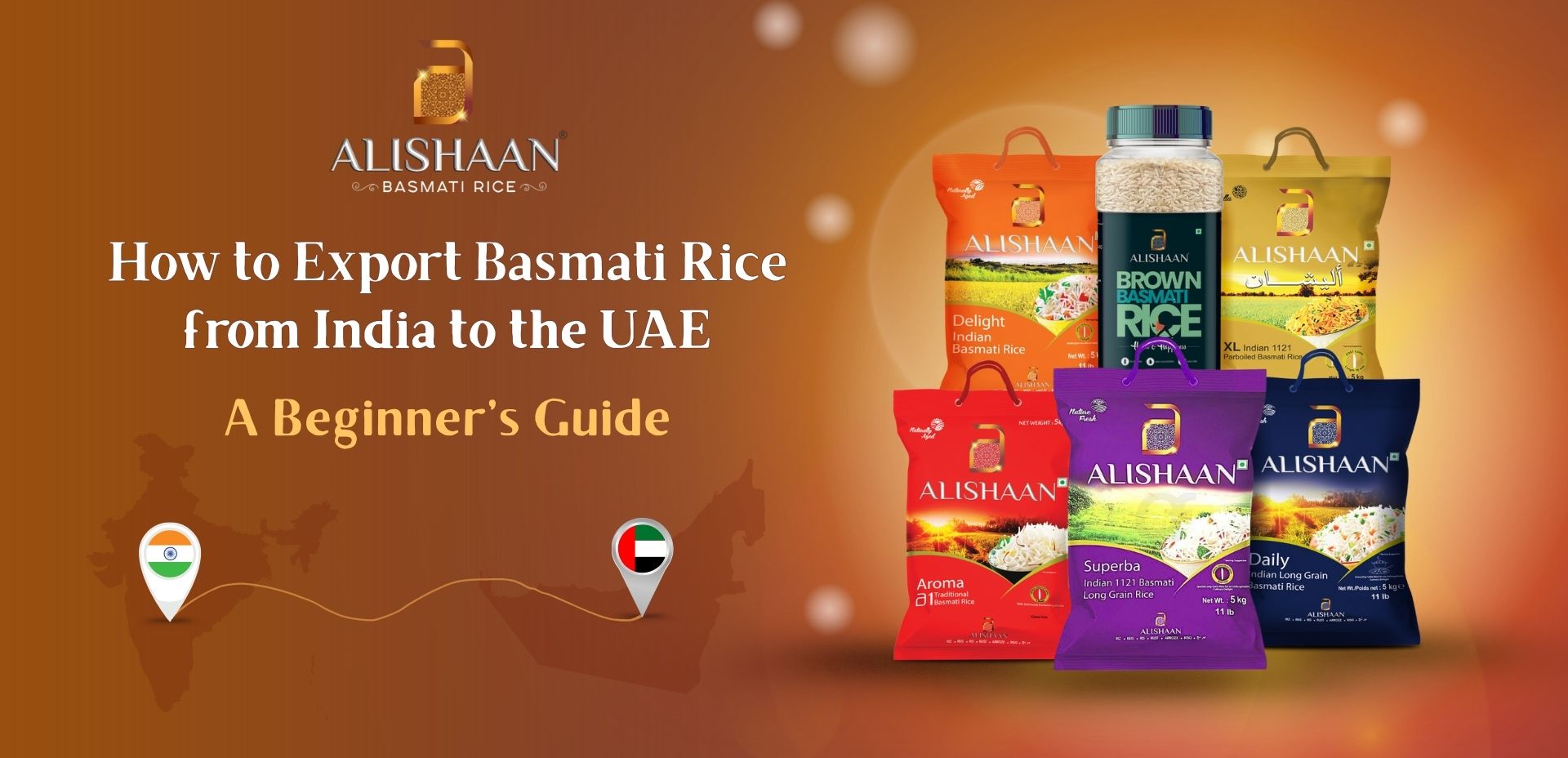
How to Export Basmati Rice from India to the UAE: A Beginner’s Guide
Every grain of Indian basmati rice carries a story — of fertile fields, careful harvesting, and generations perfecting the art of cultivation. In the UAE, where food culture is vibrant and diverse, this rice has become a kitchen staple, especially for dishes like fragrant biryani. For new exporters, the idea of sending basmati across borders may seem intimidating, with numerous rules, documents, and approvals to consider. But the truth is, with a clear plan and the right guidance, entering the UAE market with the best basmati rice can be simpler than it looks.
1. Secure Your Export License and Registration
The first step is ensuring you’re legally allowed to export. You’ll need an Import–Export Code (IEC) from the Directorate General of Foreign Trade (DGFT). Since Indian basmati rice falls under agricultural commodities, registration with the Agricultural and Processed Food Products Export Development Authority (APEDA) is compulsory. APEDA also requires that all basmati export contracts be registered online before shipment.
2. Ensure Quality Standards and Certifications
Exports must conform to strict quality norms. Each consignment should carry an inspection certificate from the Export Inspection Council (EIC). A phytosanitary certificate, issued by India’s NPPO, is also required to confirm that the shipment is pest-free. These certifications are essential, especially for premium biryani rice, which is widely consumed in the UAE for both home cooking and commercial food service.
3. Choose the Correct HS Code
Getting customs documentation right is critical. For most exports, the HS code is 1006.30.20 (semi- or wholly-milled basmati). Correct classification ensures smooth clearance, proper tariff application, and avoids costly delays. This is especially important when marketing your product as the best basmati rice, as accuracy in paperwork builds reliability with importers.
4. Understand the UAE’s Import Regulations
In the UAE, all food imports are regulated by Dubai Municipality’s Food Import and Re-export System (FIRS) and the ZADI portal. While your UAE-based importer handles registrations, you must ensure packaging and labeling compliances. Labels must include Arabic and English translations, product name, country of origin, nutritional details, shelf life, and storage instructions. Clear labeling ensures your rice maintains its reputation among UAE consumers, many of whom specifically look for biryani rice or premium basmati.
5. Prepare Complete Documentation
A successful export shipment depends on accurate paperwork. The essential documents include:
- Commercial Invoice & Packing List
- Certificate of Origin
- Bill of Lading or Airway Bill
- Phytosanitary Certificate
- EIC Inspection Certificate
- APEDA Contract Registration Copy
Even small mismatches can lead to shipment holds. Maintaining accuracy is vital when exporting the best basmati rice to discerning UAE buyers.
6. Select Logistics and Incoterms
For beginners, CIF Jebel Ali or CFR Khalifa Port are popular shipping terms, as exporters manage freight and insurance while the buyer handles customs clearance. Alternatively, FOB (Free on Board) Indian ports transfers responsibility earlier, which some new exporters prefer.
7. Know What Happens at UAE Customs
On arrival, the UAE importer files the import request through FIRS/ZADI, attaches your documents, and coordinates with Dubai Municipality’s Food Safety Department for inspections. If all documents and labels comply, the shipment is released quickly, reaching retailers and restaurants that rely heavily on Indian basmati rice.
8. Pricing, Duties, and Payments
The UAE applies relatively low or zero duties on staple foods, but correct HS code classification is crucial to determine tariffs. To protect your business, negotiate secure payment terms such as Letters of Credit (LCs) or partial advance payments. Keep an eye on India’s export policy updates, like changes in minimum export price (MEP), as these directly affect basmati exports.
9. Avoid Common Pitfalls
- Not registering basmati contracts with APEDA.
- Sending shipments with non-compliant labels.
- Skipping phytosanitary or EIC inspection certificates.
- Using vague or incorrect HS codes.
These oversights can delay or derail your first shipment.
Conclusion
Stepping into the UAE market is more than just business — it’s about carrying India’s pride to Emirati homes and restaurants. Exporting requires discipline in paperwork, patience with processes, and trust in reliable partners. Yet, once those foundations are in place, the rewards are worth the effort. For those ready to make their mark, Alishaan basmati rice stands as a trusted choice, combining heritage with consistency. From Indian soil to UAE dining tables, it reflects everything people love about the best basmati rice — aroma, taste, and timeless authenticity.

No Comments